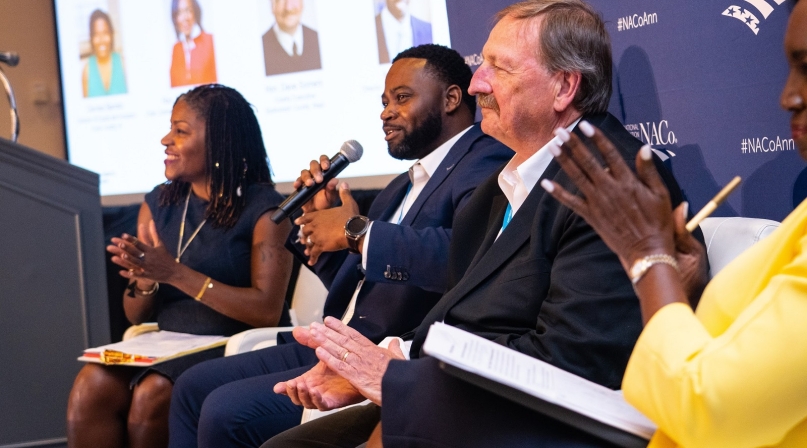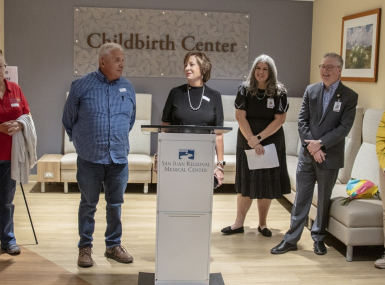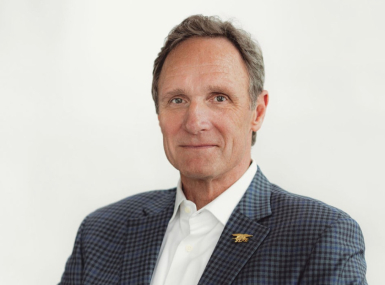County leadership on DEI starts at the top
Upcoming Events
Related News

Key Takeaways
I’ve been given great responsibility as Snohomish County Executive to expand the conversation and advance diversity, equity and inclusion in all of our communities.
The entire county is nearing 850,000 people, about 70 percent are White, and it’s a very easy place just to put issues or race aside and say there’s no problem because a lot of us don’t experience it on a day-to-day basis. There had been a Diversity Commission under a prior county executive, and it had disbanded itself out of frustration at the lack of progress.
Talking to our employees, particularly our employees of color, about what they are experiencing and checking back in with the former task force revealed deep problems. We have Proud Boys, and we have White nationalists; they showed up on our streets in 2020 in response to a false rumor that Antifa and Black Lives Matter activists were planning to overtake one of our towns. The deep divisions became extremely clear to me and everyone else who was paying attention.
I established a new Equity and Inclusion Task Force, and I asked employees—a very diverse group with a passion for these issues—please tell me how to best advance this conversation and this work here in Snohomish County because many of you have lived it and experienced it. They came back and said: “This needs to come from the leadership, this needs to come from the top, needs to come from the county executive. You need to be clear about language that’s coming out. You need to empower people. We have a lot of work here to do within county government.”
I had a list of things that we needed to accomplish after George Floyd’s murder in 2020. Working with our local NAACP chapter, I issued a proclamation because I wanted to be very clear about what I hoped we could accomplish, things like body cams, citizen oversight bodies, and bail reform. I started an Office of Social Justice in my office and reassigned five staff members to it. We meet weekly, and I’m part of that group, so is my deputy. Everything that group does comes with the weight of my office behind it. The task force is now assigned to our human resources department and is going through all the impediments we have to employment, workplace barriers, and all the things that our employees really experience that are challenges to advancing diversity and inclusion in the workplace.
It’s also essential that people we are asking to do work for us are compensated. Many of the community leaders have other jobs or responsibilities. During the Census, we knew we had to reach out to underrepresented communities and asked for community leaders to help us get this work done. We ended up paying them using gift cards because that’s the only way we could get the approval of our attorneys. With the COVID-19 pandemic, we wanted to make sure we were getting information about clinics and vaccines out to everybody in our community; therefore, we compensated people who helped with outreach. As a result, we saved lives.
Once a month, my department directors and our leadership team have dedicated cabinet meetings to talk about diversity, equity and inclusion issues. And last year we worked through the book “Me and White Supremacy.” The book allowed us to discuss some very difficult issues and better understand where we needed to make progress. These conversations can be uncomfortable, and some of my department directors were really challenged. We read through the book and had roundtable discussions on it to make sure we all could face this together. As a result, DEI has been at the forefront of everything we do.
I’m an older White guy, but it’s very important not only that I listen to all of our communities but also that I listen to people who experience racism and inequity in our community. I want their experience to inform me and my work. I’m not an expert on DEI issues, but I must make decisions on what to do, because of my role in the community. In order to make those decisions, I need folks talking to me who live this every single day, because I don’t. I know that their input is essential to guide me, my office and its work. Our engagement with our communities and community leaders is absolutely vital both to the work we’re doing internally and to the work we do out in the community. They help inform my decision making.
We are all in different places along this journey of making our communities and country fairer and more just for everyone. There are various levels of comfort even talking about these issues, but in Snohomish County we talk about them. Though, those of us who are more comfortable, we do most of the talking and those who are less comfortable do more listening. As we go through this process, it’s becoming easier for everyone to talk and explain our wealth of perspectives and experiences or lack of experiences.
Prior to working in county government, I was a biologist, and there is something in biology called disturbance ecology. When you have a flood or a fire or a windstorm, there’s disruption and there can be pain. But from that, new life springs forward. So having these issues out in the open, talking about them, trying to understand them, identifying where we are, is really the only way forward. It’s a good thing. It can be painful, but it’s a good thing. We just need to keep talking about it, understand it, and move forward.
Attachments
Related News

Now I know I can adapt my communication style
San Juan County, N.M. Commissioner Terri Fortner spent her career working with people one-on-one, but she overcame hangups about online communication when the pandemic forced her onto video calls when she first took office.

County service meets a veteran’s need for purpose in Spotsylvania County, Virginia
After Drew Mullins transitioned from a high-performance lifestyle in the military, he found the environment and purpose he sought when he took office in his county.
Now I know that solid waste is complicated
Custer County, Idaho Commissioner Will Naillon says solid waste removal is "one of the things that people often take for granted until it’s their job to make sure it happens... that’s the story of being a county commissioner."